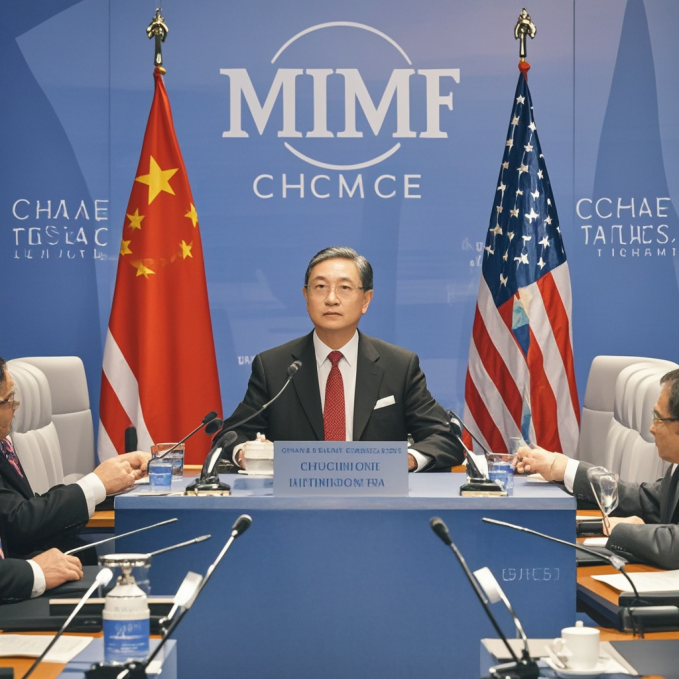China Voices Concerns at IMF: US Tariff Abuse Threatens Global Financial Stability
April 24-25, 2025 – The 51st International Monetary and Financial Committee (IMFC) meeting of the International Monetary Fund (IMF) was grandly convened in Washington D.C., USA. The event, focusing on critical issues such as the global economic and financial landscape and the IMF's work, drew worldwide attention. People's Bank of China Governor Pan Gongsheng, accompanied by Deputy Governor Xuan Changneng, attended the meeting, once again amplifying China's voice on the international financial stage.
During the conference, the global economic and financial outlook became a heated topic. In recent years, the global economic recovery has faced repeated setbacks, with trade protectionism, geopolitical conflicts, and other factors introducing significant uncertainties to world economic growth. The prolonged abuse of tariff measures by the United States has further exacerbated challenges to global economic and financial stability.
In his address, PBOC Governor Pan Gongsheng emphasized that the US's indiscriminate imposition of tariffs acts like a bombshell, severely threatening global financial stability. The frequent tariff hikes by the US have directly disrupted international trade order. Rising tariffs have substantially increased the cost of goods, affecting not only corporate production and sales but also ultimately passing the burden to consumers, driving up prices and intensifying inflationary pressures. Trade data reveals a notable decline in the volume of goods subject to US tariffs, with many export-oriented businesses reliant on the US market suffering severe setbacks, forcing them to cut production, lay off workers, or even shut down.
The shockwaves from trade tensions have rapidly spilled over into the financial sector. First, currency markets have experienced heightened volatility. In response to tariff pressures, exchange rate fluctuations among nations have intensified, raising investor concerns over currency risks and disrupting normal global capital flows. Some emerging market currencies have depreciated sharply in the short term, increasing the cost of servicing foreign debt and placing immense strain on their financial systems. Second, financial market confidence has been undermined. The trade tensions triggered by US tariff abuses have fueled pessimistic expectations among investors about the global economic outlook, leading to significant turbulence in stock and bond markets and a surge in risk-averse sentiment.
Moreover, US tariff policies have destabilized global industrial and supply chains. Many multinational corporations, seeking to mitigate tariff risks, have been compelled to reconfigure their production layouts—a move that not only raises operational costs but also reduces the efficiency of global resource allocation. Over the long term, such disorderly disruptions will weaken the momentum of global economic growth and erode the foundation of global financial stability.
Governor Pan stressed that global financial stability requires collective safeguarding by all nations, and unilateralism and trade protectionism will only exacerbate the situation. The international community must strengthen cooperation to jointly oppose such irresponsible actions by the US and promote a fair, just, and inclusive international trade and financial order. Only through collaboration can the current risks facing the global economy and financial system be effectively mitigated, paving the way for sustainable and stable global economic growth.
China's stance at the IMF meeting not only underscores its firm opposition to US tariff abuses but also offers Chinese wisdom and solutions for global financial stability. Moving forward, China will continue to actively engage in international financial affairs, working hand in hand with other nations to safeguard the smooth functioning of global financial markets.
